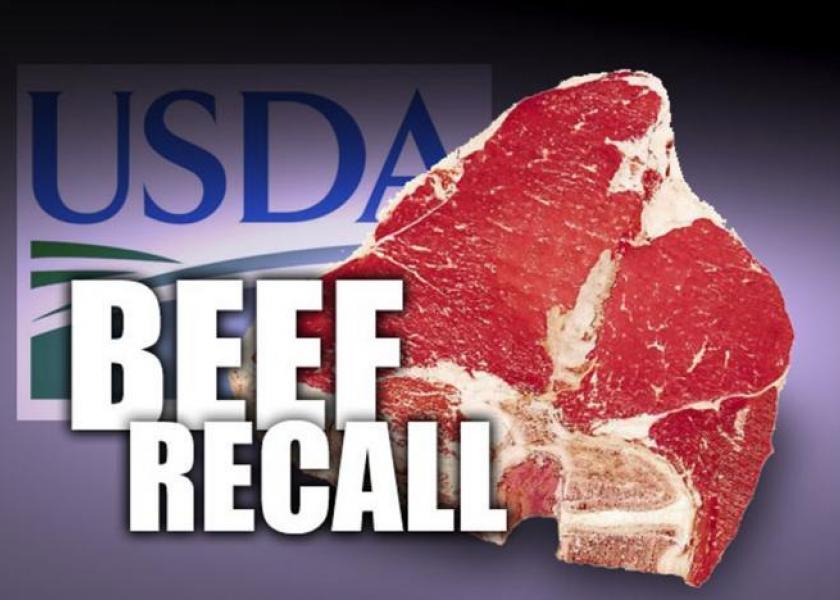Another 53,000 lb. of Ground Beef Recalled by USDA for E. Coli

The U.S. Department of Agriculture’s Food Safety and Inspection Service (FSIS) has filed another recall because of E. coli for more than 53,000 lb. of ground beef just one day after a separate recall for nearly 57 tons.
FSIS announced on April 24, that 53,200 lb. of raw ground beef products processed by Grant Park Packing in Franklin Park, Ill., may be contaminated with E. coli O103. Correspondingly, the day prior a recall was declared for ground beef processed by K2D Foods’ Colorado Premium on 113,424 lb. of meat believed to possibly be contaminated by E. coli O103.
The latest recall is on bulk raw ground beef was produced on October 30-31, 2018 and November 1, 2018. The beef is in 40-lb. bulk cardboard boxes with the following labeling:
- “North Star Imports & Sales, LLC. 100% GROUND BEEF BULK 80% LEAN/ 20% FAT” marked “FOR INSTITUTIONAL USE ONLY” with lot code GP.1051.18 and pack dates 10/30/2018, 10/31/2018, and 11/01/2018.
Products subject to recall were shipped to Minnesota for further distribution and Kentucky for institutional use. The packaging bears establishment number “EST. 21781” inside the USDA mark of inspection.
The agency has called it a Class 1 Recall with a “high” health risk. FSIS urges restaurants that have the beef not to serve it and to either throw it away or return it to the place of purchase.
Continuing Investigations
FSIS along with the Centers for Disease Control (CDC) and Kentucky Department for Public Health have been investigating an outbreak of E. coli O103, which is how the Grant Park Packing products were found.
The recall of the ground beef from Colorado Premium Foods was found through an investigation by the CDC, FSIS and Tennessee Department of Health. A similar investigation is being conducted by CDC, FSIS and other state organizations after 156 people were infected in 10 states by an outbreak of E. coli O103. Currently, there is “no definitive link” between these recalls and the ongoing outbreak.
Those organizations are conducting interviews with people who became ill. Thus far, of the 114 people surveyed who were sick, 81% ate ground beef. Those people consumed ground beef from several different grocery stores and restaurants.
Further testing and investigations are being done to determine if more beef products need to be recalled.
E. coli can be potentially deadly causing dehydration, bloody diarrhea and abdominal cramps 2–8 days (3–4 days, on average) after exposure to the organism. FSIS recommends that any consumers who purchased the product to not consume it and either throw it away or return to the store where it was purchased.
All raw beef should be cooked to a temperature of 160°F to reduce the risk of any food borne illness by bacteria according the FSIS. A meat thermometer will help in determining if the food has reached a high enough temperature to kill harmful bacteria.







